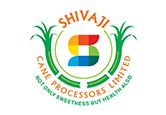Subsidiaries

Shakumbari Sugar and Allied Industries Ltd (SSAIL) was incorporated on March 29, 1994, as a public limited company in Saharanpur, Uttar Pradesh, India. The company has established itself as a key player in the Indian sugar and ethanol industries. Initially, SSAIL was set up with a capacity of 2500 TCD (tons of cane per day), and over the years, it has expanded to 5000 TCD. In addition to sugar, SSAIL operates a 60 KLPD (kiloliters per day) ethanol distillery and a cogeneration power plant producing 10.45 MW of energy, ensuring energy-efficient and sustainable operations.

Vision:
SSAIL’s vision is to be a leader in the sugar and ethanol industries by driving innovation, sustainability, and operational excellence. We aim to contribute meaningfully to India’s ethanol-blending programs, reduce our carbon footprint, and create a lasting positive impact on the communities we serve.

Mission:
Our mission is to produce high-quality sugar, ethanol, and by-products through efficient and environmentally sustainable processes. We are dedicated to maintaining a robust supply chain, optimizing resource utilization, and upholding the highest standards of corporate governance and ethical business practices.
Key Products:
- Refined Sugar
- Ethanol
- Molasses
- Bagasse
- Press Mud

SIR Agro Trading Co LLC, a worldwide trading company and a subsidiary of MEIR Commodities, was established in Dubai on March 3, 2022, with the primary goal of being able to source commodities from several alternative origins both in response to the preferences of the customers' as well as overcoming export restrictions which one or the other origin might suffer. Moreover, an entity in Dubai offers opportunities for arbitrage trade on the commodity exchanges, which India and some other countries might non permit.
Given this dynamic landscape, there is significant potential for firms like SIR Agro TradingCo LLC to establish a strong presence and generate value. With the robust support of MEIR Commodities, SIR Agro is strategically positioned to seize these opportunities, thereby contributing to the growth of the Meir Group.

Shivaji Cane Processors Limited, a subsidiary of MEIR Commodities, is located in Shirala, Sangli District, in the Paschim (Western) region of Maharashtra. This unique organization specializes in producing Chemical-Free Khandsari Sugar and Chemical-Free Jaggery Powder, Sugar Syrups and Speciality Sugars. Established in 2010, the company is registered as a public limited entity under the Indian Companies Act, 1956.
Situated in a fertile area known for its high sugarcane production, the plant benefits from the rich basins of the Krishna, Warana, and Morma rivers. This region’s favorable climate and excellent irrigation infrastructure make it ideal for sugarcane cultivation, a traditional crop for local farmers.
Recognizing this potential, the founder of Shivaji Cane started the plant to support local farmers and enhance their economic and social well-being. Over 14,000 farmers have since registered as producer members, and the company operates a well established manufacturing plant with a daily capacity of processing 1,700 metric tons of sugarcane.
Shivaji Cane takes pride in its commitment to producing high-quality, chemical-free products. The company focuses on local communities while building its reputation across India through innovative and sustainable practices.
Under the experienced leadership of the company has maintained a strong presence in the Khandsari sugar and jaggery market. Its focus on quality, professionalism, and community support has made Shivaji Cane Processors a market leader in just a few years.

The company aims to capture the fast-growing value-added market segment of branded staple foods markets in India.
The company plans to target sugar, Khandsari and jaggery, rice, pulses, atta, millets, and spices during the initial phase.
The present size of the market is estimated at Rs 49000 crores, growing at an impressive rate of 10% per annum. If one includes unbranded packaged staples, the market size is assessed at 4.25 lakh crores.
The packed food market in India is rising at a pace faster than growth in parameters like population which is rising at 1% pa, urbanization which is rising @ 2.3% pa. Rising incomes, awareness of hygiene, and realization of advantages offered by packed foods like the promise of quality, quantity, fair price, and, above all, traceability, are all contributing to the breathtaking growth of this segment.
Kermis plans to ride this growth. It plans to have a mix of two models:
- Own brands.
- White labeling ie custom packaging for other brand owners.
The plans for this business are on the drawing board and will be executed when MEIR Commodities is confident of its managerial bandwidth to set up and operate this business at a financially viable scale.

As MEIR Commodities India Ltd (hereafter the Company) firmed up plans for backward integration of its sugar trading portfolio with sugar manufacturing, it was only logical to plan to enter the compressed biogas segment to utilise the press mud available from the group sugar plants for the production of compressed biogas (cbg).
The design of the project is very sound.
It is proposed to be led by a well-known technologist with a proven track record in managing industrial units in the sector:
Mr. Dilip Patil, a reputed technologist, on the verge of retiring from the position of Managing Director of a sugar mill, being available to participate in the venture after his retirement, Harit Urja Pvt Ltd has been incorporated with the company and Mr Dilip Patil subscribing to the joint venture 2 50% each. Mr Patil will bring an exceptional level of expertise to the venture.
Abundance of input material:
Bioenergy captured as biogas is an energy source that is derived from organic matter present in plants or other organic residue. A great potential for biogas exists in India as it is estimated that about 150 million tonnes of agricultural residue are available as a resource for biogas, besides waste material from industries discarding pulpy material like textile, paper etc. the growing distillation industry in the country to meet the EPB target of 20% blending ( requiring 11 billion litres of ethanol) will generate an abundance of spent wash, an input for biogas. There are several other sources like cattle dung and Napier grass.
Also known as elephant grass, Napier grass is a productive and versatile forage grass native to this region. This fast-growing perennial grass can reach a height of 10 to 15 feet and can be harvested 5-6 times annually. In India, the reported annual production yield of Napier grass is about 450 to 500 tonnes per hectare per year. Higher yields of up to 900 to 1000 tonnes per hectare per year by cultivating a hybrid variety called Super Napier have also been reported. 20 tonnes of Napier grass converts to one tonne of cbg.
With an energy output-to-input ratio of approximately 25:1, it emerges as one of the most promising energy crops with low maintenance.
Huge Demand:
According to IEA’s energy analysts, bioenergy is projected to account for 18% of the total energy supply in 2050
Attractive Incentives as it fits int Government’s energy Transition Plan:
The Government of India has announced attractive incentives for the establishment of cbg plants.
- Mandatory blending of 1% biogas in CNG and 4% in PNG has been announced from 2025-26, to go up to 5% uniformly from 1028-29 onwards.
- Incentives are available for Citigas distribution companies to blend cbg with cng.
- Lending to cbg projects has been accorded priority sector status.
- Rs 1500 per tonne subsidy on fermented organic manure ( available as a residue in cbg plants).
- The National Biofuels Programme (up to 2015-26) envisages financial support for cbg plants. Phase 2 will follow the Phase 1.
- Excise duty waiver to the cbg component of the gas blend retailed has been announced.
- Carbon credits are available.
- Oil marketing companies and gas distribution companies have been mandated to purchase the cbg at attractive prices.
The Current Status of the Project:
Harit Urja is at a stage of project planning. While it proposes to set up cbg facilities at two subsidiaries of Meir Commodities India Ltd, viz Shakumbari Sugar & Allied Industries Ltd and Shivaji Cane Processors Ltd, it is in the process of site and size determination for Napier grass based facility to be in Maharashtra.












